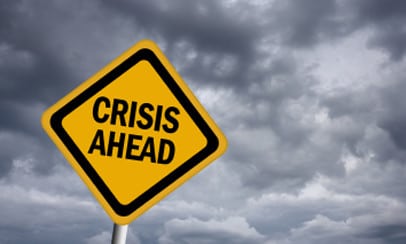
2018 was a blockbuster year–but only if measured in the number of boneheaded moves brands and executives made time after time.
The surfeit of poor crisis responses have provided myriad lessons [see the last column in our charts below]. Of course, with so many apt examples, it’s natural to wonder why brands continue to commit errors when responding to PR crises.
How many data breaches does it take for brands to realize there’s rarely an advantage in trying to cover up the inadvertent loss of users’ information? Weren’t the Equifax breach or the Cambridge Analytica affair adequate lessons? Apparently not, since other brands, including Google (Google+) and Facebook, also delayed their responses to data breaches, tried to hide them or dismiss them as minor incidents.
Corporate Culture, Government Miscues
Certainly a poorly functioning corporate culture is an obvious place to look when a crisis is mishandled.
A traditional explanation for a brand or organization to cover up a situation, which later grows into a crisis because it’s been hidden, is that executives think nobody will find out about it. As we have seen repeatedly, hoping a situation will resolve itself because its been covered up is rarely a successful strategy.
A Contemporary Explanation for Crisis
A possible explanation for the inept crisis management of 2018 is that the poor communications practices of the federal government have resulted in making us inured to gaffes.
Another possibility is that being outrageous has become almost a badge of honor. Examples abound in government, corporate America and the nonprofit world.
Can you imagine a CEO getting in trouble with the SEC for tweeting sensitive financial information and then blaming it on drugs? Me neither.
A CEO or a celebrity behaving outrageously periodically is excused sometimes. Predicting when the public will be in a forgiving mood, though, is an inexact science. Repeated outrageous behavior is less easy to forgive, as Elon Musk discovered.
For a brand in crisis, it’s usually better to own your mistakes promptly and issue a sincere apology. After that be as transparent as possible about why the crisis occurred and communicate a plan that will ensure it’s unlikely to recur.
More Options
On the other hand, there’s an upside to the botched communications of 2018 that we should be grateful for: Musk clearly expanded the range of responses to corporate crises.
And who knew I’d be grateful to Russia’s Internet Research Agency, Facebook, Twitter and Cambridge Analytica for making all of us a whole lot warier and skeptical about everything we read on social media? Where is Walter Cronkite when you need him?
Cultural Boundaries and Racism
Let’s not forget Burger King, which managed to insult half the audience of the World Cup with its advertising. Or Facebook, whose inept responses and cavalier behavior helped it achieve it goal of uniting the world. Unfortunately, the world now seems united against Facebook.
And let’s not forget Roseanne Barr, whose racism on social media lost her a top-rated television series.
The one thing all these crises had in common was that the brands and celebrities involved ignored most of the established data and conventional wisdom. Instead, for whatever reason, they decided to follow Frank Sinatra’s advice and respond to crises by doing things their way.

CONTACT: kdpaine@painepublishing.com
